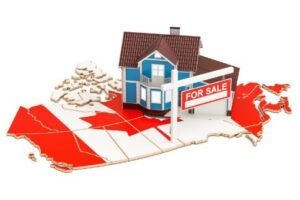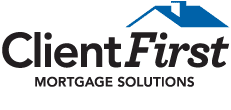The process of a home-purchase can be overwhelming. We will make sure you choose the best option for your circumstances. While a 5-year fixed rate mortgage may be the most popular type of mortgage in Canada, there are certainly many options.
 Which type of mortgage in Canada will work best for you, will depend on your financial health and lender assessment criteria. How is you credit score? How much of a down payment can you afford upfront?
Which type of mortgage in Canada will work best for you, will depend on your financial health and lender assessment criteria. How is you credit score? How much of a down payment can you afford upfront?
There are several different types of mortgages in Canada. The different mortgages include options to avoid lenders charging penalty fees for breaking your contract, or paying penalty fees for paying your home loan off earlier. Unless you plan to own your house until it is repaid in full, you may require flexibility.
The different kinds of mortgages in Canada, include the following:
- Open Mortgages
- Closed Mortgages
- Portable Mortgages
- Assumable mortgages
Open Mortgages
For Open Mortgages, the interest rate is often higher compared to closed mortgages, with a similar term length, allowing for greater flexibility if you want to make extra mortgage payments. An open mortgage could be a good option if you want to:
- Pay off your mortgage sooner.
- Sell your home soon.
- Put extra money toward a mortgage payment from time-to-time
Closed Mortgages
For Closed mortgages, interest rates are typically lower compared to an Open mortgage with a similar term length. Closed term mortgages limit the amount of extra funds you can put toward repaying your mortgage very year. It is called Prepayment privileges and it is included in your mortgage contract. A Closed mortgage could be a good option if you want to:
- Keep your home for the remainder of your loan term
- Have the Prepayment privileges that gives you enough flexibility for the prepayments you want to make.
Portable Mortgages
A Portable mortgage, allows you to transfer your current mortgage if you sell your property to purchase another one. This includes the transfer of the interest rate, terms and conditions, and mortgage balance. A Portable mortgage might be a good option for you if:
- You have good terms on your current mortgage.
- You want to avoid prepayment penalties for breaking your contract.
- Make sure you do your research, or get us to help you, because you may end up paying a prepayment penalty if your new property costs less than the amount you owe on your home loan.
Assumable mortgages
An Assumable mortgage allows you to assume someone else’s home loan and their home. The terms of the initial mortgage must remain the same. An assumable mortgage might be a good options for you if:
- You are a seller and plan to move into a less expensive property, but want to avoid prepayment fees due to the years you have left on your loan term.
Typically, fixed-rate mortgages can be assumed, while variable-rate mortgages and Home Equity Lines of Credit (HELOC), usually cannot. Remember the Lender must qualify the buyer who wants to assume the mortgage.
What is a Fixed-rate mortgage
A Fixed-rate mortgage means that your mortgage rate will remain the same until your mortgage term is completed.
- If you think mortgage rates will increase in the short term, you can choose a fixed-rate mortgage for a long-term length, such as a 10-year term.
- If you think mortgage rates will remain the same or decrease, you may want to go with a shorter-term length.
What is a Variable-rate Mortgage?
The interest rate on a Variable-rate mortgage fluctuates based on an underlying benchmark rate. In Canada, this is determined by the Prime Rate set by the mortgage lender (6.70% currently). While lenders determine their own prime rates, the prime rate is normally determined by the Bank Of Canada’s policy interest rate, commonly known as the overnight rate.
The most common mortgage term in Canada, is the 5-year Fixed rate.
If you need assistance in choosing your mortgage option, don’t hesitate to contact us.
Original article: www.mpamag.com


